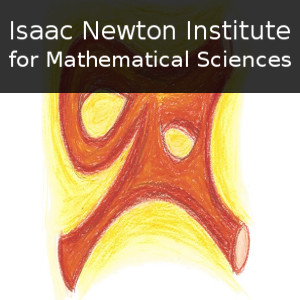The model-independent theory of (∞,1)-categories (1)
1 hour 11 mins,
876.19 MB,
WebM
640x360,
60.0 fps,
44100 Hz,
1.64 Mbits/sec
Share this media item:
Embed this media item:
Embed this media item:
About this item

| Description: |
Riehl, E
Monday 2nd July 2018 - 10:00 to 11:00 |
|---|
| Created: | 2018-07-03 12:46 |
|---|---|
| Collection: | Higher structures in homotopy theory |
| Publisher: | Isaac Newton Institute |
| Copyright: | Riehl, E |
| Language: | eng (English) |
| Distribution: |
World
|
| Explicit content: | No |
| Aspect Ratio: | 16:9 |
| Screencast: | No |
| Bumper: | UCS Default |
| Trailer: | UCS Default |
| Abstract: | Co-author: Dominic Verity (Macquarie University)
In these talks we use the nickname "∞-category" to refer to either a quasi-category, a complete Segal space, a Segal category, or 1-complicial set (aka a naturally marked quasi-category) - these terms referring to Quillen equivalent models of (∞,1)-categories, these being weak infinite-dimensional categories with all morphisms above dimension 1 weakly invertible. Each of these models has accompanying notions of ∞-functor, and ∞-natural transformation and these assemble into a strict 2-category like that of (strict 1-)categories, functors, and natural transformations. In the first talk, we'll use standard 2-categorical techniques to define adjunctions and equivalences between ∞-categories and limits and colimits inside an ∞-category and prove that these notions relate in the expected ways: eg that right adjoints preserve limits. All of this is done in the aforementioned 2-category of ∞-categories, ∞-functors, and ∞-natural transformations. In the 2-category of quasi-categories our definitions recover the standard ones of Joyal/Lurie though they are given here in a "synthetic" rather than their usual "analytic" form. In the second talk, we'll justify the framework introduced in the first talk by giving an explicit construction of these 2-categories. This makes use of an axiomatization of the properties common to the Joyal, Rezk, Bergner/Pellissier, and Verity/Lurie model structures as something we call an ∞-cosmos. In the third talk, we'll encode the universal properties of adjunction and of limits and colimits as equivalences of comma ∞-categories. We also introduce co/cartesian fibrations in both one-sided and two-sided variants, the latter of which are used to define "modules" between ∞-categories, of which comma ∞-categories are the prototypical example. In the fourth talk, we'll prove that theory being developed isn’t just "model-agnostic” (in the sense of applying equally to the four models mentioned above) but invariant under change-of-model functors. As we explain, it follows that even the "analytically-proven" theorems that exploit the combinatorics of one particular model remain valid in the other biequivalent models. Related Links http://www.math.jhu.edu/~eriehl/scratch.pdf - lecture notes from a similar series of four talks delivered at EPFL http://www.math.jhu.edu/~eriehl/elements.pdf - book in progress on the subject of these lectures |
|---|---|
Available Formats
| Format | Quality | Bitrate | Size | |||
|---|---|---|---|---|---|---|
| MPEG-4 Video | 640x360 | 1.95 Mbits/sec | 1.02 GB | View | Download | |
| WebM * | 640x360 | 1.64 Mbits/sec | 876.19 MB | View | Download | |
| iPod Video | 480x270 | 529.3 kbits/sec | 275.25 MB | View | Download | |
| MP3 | 44100 Hz | 252.31 kbits/sec | 131.21 MB | Listen | Download | |
| Auto | (Allows browser to choose a format it supports) | |||||

